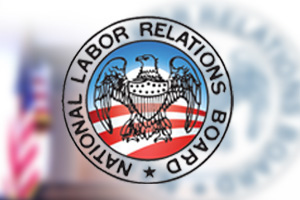
By Michael Burns, courtesy SBAM Approved Partner ASE
The National Labor Relations Board (NLRB) continues to review union and non-union employer policies and rules. In an Advice Memo published last week by the NLRB, the Board’s advice division looked at two employer rules through the lens of its 2017 Boeing decision. This decision trimmed back considerably the previous NLRB’s position that if an employer’s rule could in any way infringe upon an employee’s right to engage in protected concerted activity it would generally be found to be illegal. The more employer-friendly Boeing ruling has employer’s work rules (policies) split into three types:
1. Those rules that have a practical basis in dictating the legitimate business concerns of the employer and also cannot be reasonably interpreted to interfere with a worker’s rights and therefore are legal.
2. Those rules that are legal in some cases depending upon their application.
3. Rules that are always illegal because they interfere with workers rights in a way that is not outweighed by business interests.
An example of an employer rule that falls into the last category is a rule prohibiting employee’s discussing wage/salary information with each other.
Last week’s Advice Memo addressed an employer rule that fell into this third category. The Advice Memo held an employer’s rule telling workers that the contents of the employee handbook were confidential was illegal because it “effectively precludes employees from discussing handbook policies regarding employee pay, benefits, and working conditions with unions and others.”
Addressing another common employer concern and rule, the NLRB’s advice department looked at an employer rule stating that workers are not allowed to wear “any items of apparel with inappropriate commercial advertising or insignia.” In this case, the NLRB found the rule would not be misinterpreted by workers as prohibiting wearing items bearing union logos and was therefore legal using the second Boeing rule criteria.
In a third case, the NLRB found a rule that prohibited workers from using their personal cellphones during breaks and downtime was illegal. The NLRB’s Advice Memo stated that employees have a “right to communicate with each other through non-employer monitored channels during lunch or break periods.” Applying the Boeing standard, the employer could not demonstrate how the use of personal cell phones during break time overcame the employee’s right to communicate with one another.
The NLRB continues to pare down the broad pro-worker prohibitions the previous NLRB (Democrat controlled) had put on employers’ policies and rules with its more reasonable approach under the 2017 Boeing ruling.
The concern and question employers should have going forward is if the administration changes in 2020, and the new administration is Democratic, it is likely the more reasonable rules that balance employer rights with employee rights will again be reconsidered and possibly reversed in favor of a pro-labor focus as happened in 2008.